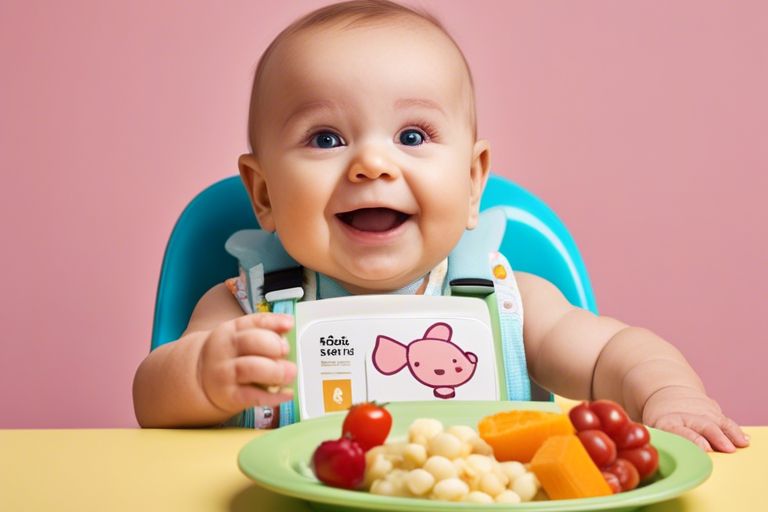tips, tricks and guides for parenthood
#Safety first! Regarding feeding our little ones, proper food safety is crucial to preventing illness at mealtime. From washing hands before and after handling food to ensuring all utensils and surfaces are clean, every precaution counts. Avoiding cross-contamination by keeping raw meats separate from other foods and thoroughly cooking all ingredients are vital steps. By following these food safety guidelines and being mindful of expiration dates, we can provide our babies with nutritious meals that keep them healthy and happy.
One of the most important aspects of ensuring your baby's food safety is maintaining cleanliness in the kitchen. This includes washing your hands thoroughly before preparing meals, cleaning and sanitising all utensils and surfaces, and storing food properly.
Getting into the habit of safe food handling practices is crucial when it comes to your baby's health. The Food Standards Agency recommends washing fruits and vegetables before cooking, using separate cutting boards for raw meat and produce, and cooking foods to the appropriate temperatures.
The Food Standards Agency also advises against preparing food too far in advance to avoid bacterial growth, and to refrigerate any leftovers promptly to prevent food poisoning.

Assuming you're a new parent, navigating the world of baby food stages can be overwhelming. Your baby will typically start with purees, progressing to mashed and chopped foods as they grow. It's important to introduce new textures gradually to ensure they can swallow and digest properly.
Baby, when preparing and storing baby foods, always remember to wash your hands and utensils thoroughly before handling any ingredients. The most important aspect of baby food safety is to ensure that all fruits and vegetables are washed and peeled to remove any harmful bacteria or residues. Remember to store homemade baby food in airtight containers in the fridge and use them within a few days or freeze for future use.
After exploring the Do's and Don'ts for Baby's First Foods, it's crucial to understand how to navigate allergies and sensitivities when introducing new foods to your baby.
To ensure your baby's safety, it's vital to be aware of common allergens such as dairy, eggs, nuts, wheat, soy, and fish. Start by introducing one new food at a time and monitor your baby for any adverse reactions like rashes, swelling, or breathing difficulties.
The key to introducing new foods safely is to do it gradually and systematically. Begin with small amounts of a single food and wait for 3-5 days before introducing another. This approach will help you to determine if your baby has any adverse reactions. For instance, if you introduce a new food like nuts and notice any signs of an allergic reaction, such as hives or vomiting, stop feeding it immediately and consult your healthcare provider.
Despite being away from the comfort of your own kitchen, food safety for babies remains a top priority. Here are some handy tips to ensure safe food practices while eating out or travelling:
Any leftover food should be discarded if not consumed within two hours of preparation to avoid foodborne illnesses.
Homecooked meals are not always an option when travelling, but that doesn't mean you have to compromise on food safety. Eating at reputable restaurants or choosing pre-packaged baby foods can help reduce the risk of food contamination.
So, ensuring food safety for babies is crucial in preventing illness at mealtime. By following basic hygiene practices, handling food properly, and choosing age-appropriate foods, parents can create a safe and healthy feeding environment for their little ones. Taking small steps like washing hands, washing fruits and vegetables, and avoiding cross-contamination can go a long way in safeguarding your baby's health. Keep in mind, a little extra care and attention in the kitchen can make a big difference in keeping your baby happy and healthy during mealtime.
A: Food safety is crucial for babies as their immune systems are still developing, making them more vulnerable to illnesses caused by harmful bacteria or toxins in food.
A: To ensure food safety for your baby, always wash your hands before preparing food, use clean utensils and surfaces, cook food thoroughly, and store food properly.
A: Common food safety mistakes to avoid include feeding babies raw or undercooked food, not washing fruits and vegetables properly, and using expired or contaminated ingredients.
A: Introduce new foods to your baby one at a time in small quantities to check for any allergic reactions. Ensure the food is age-appropriate and prepared safely.
A: If you suspect your baby has food poisoning, look out for symptoms like vomiting, diarrhoea, and fever. Contact your healthcare provider immediately for guidance on how to care for your baby.